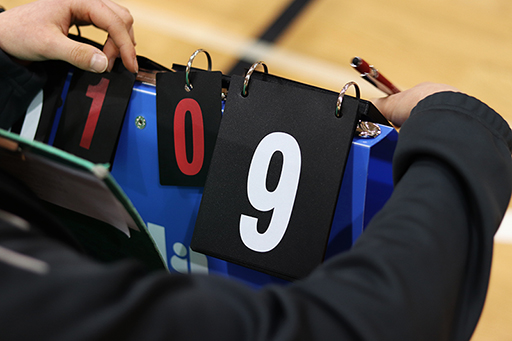4 The number game – the use of numeracy in sport
Numeracy is a broad skill that can be used in various contexts. Even if you did not enjoy maths in school, the chances are you use numeracy skills on a daily basis when undertaking tasks around the house, travelling to and from work, in your job and, of course, when you are involved in sport. You might have seen the film Moneyball, based on a true story about Billy Beane, the general manager of the Oakland Athletics baseball team. Faced with a limited budget, Beane and his assistant, Peter Brand, used data and statistics to identify undervalued players, leading to unexpected success. Whilst this is a somewhat extreme example of developing and using numeracy in sport, it underscores the crucial significance of this skill. Having an awareness of quantitative data is important for both players and coaches of sport and you are likely developing these without even realising. Indeed, engaging in sports activities has been linked to enhanced numerical abilities in individuals (Schucan Bird et al., 2013).
Activity 4 Stats in action
A range of ways in which numeracy can be used and developed in sport are listed below. Rank them using the drop-down tabs to indicate which ones are most to least utilised by you within your own sporting context. You might need to think quite broadly about how these examples could be applicable to you.
Comment
The relevance of each example here is likely to depend on your specific context as either a player or coach (or both). It is also worth remembering that this is not an exhaustive list. There will be multiple other instances where you develop numeracy though sport and often in subtle ways, for example: dividing players into groups during a training session, calculating angles when taking a shot, or even working out what time you need to leave to make a fixture on time!
Most jobs will also involve an element of numeracy, so developing and showcasing this skill can enhance your employability and open doors to a wide range of career opportunities. This does not mean you have to be proficient in maths to degree level! But being able to understand and work with numbers, such as basic arithmetic, data interpretation, and problem-solving is likely to be involved to some extent in many jobs. Remember, numeracy is not limited to specific professions or industries. It is a valuable skill that can benefit individuals across a broad range of career paths and contribute to professional success.

